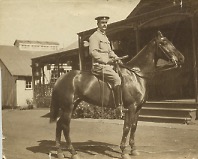International Conference at the University of Bern, Switzerland, organised by the Military Academy at ETH Zurich
23/24 March 2018, University of Bern, Länggassstrasse 49,CH- 3012 Bern, Switzerland, Room F-121
Organised by Tamara Braun and Marcel Berni
This conference will explore various issues relating to captivity in war in the 19th and 20th centuries. In recent years, the study of prisoners of war has increasingly attracted scholarly attention. However, it remains a neglected topic when it comes to research on wars, which often focuses either on the conduct of war itself or on the home front, with prisoners of war fitting in neither of those categories. The aim of the conference is to bring together academics currently working on various aspects of captivity in war during the 19th and 20th centuries, and to discuss and explain how captivity in war varied and evolved during this period.
The conference is open to all and free of charge. If you would like to attend, please E-Mail tamara.braun@vtg.admin.ch.
23 March 2018
09:30 Opening Remarks: Captivity in War: a Global Perspective (Organisers)
09:45 Keynote: German and Austrian War Prisoners in America, 1942-1946 (Arnold Krammer, Texas A&M University)
10:45-11:00 Break
11:00-12:30 Panel 1: Captivity, Law, and Supranational Institutions (Chair: Alexander Krethlow)
Captivity, Ransoming and the Scramble for Africa in the Short 19th Century in West Africa (Roy Doron, Winston-Salem State University)
Imagining or Reflecting War? The Development of International Law Protecting Civilian and Military Captives as well as Refugees From and In Captivity in the Age of Two World Wars, 1899-1951 (Daniel Marc Segesser, University of Bern)
Fighting for Respect and Dignity in the Darkest of Times: The Role of Honour-Based Practices in POW Regimes during the First World War (Jasper Heinzen, University of York)
Captivity in Ottoman Lands: Humanitarian Aid of Ottoman Red Crescent Society during First World War (Ceren Aygül, Johannes Gutenberg-University / IEG-Mainz)
12:30-13:30 Lunch Break
13:30-15:15 Panel 2: Confinement Conditions and Camp Life (Chair: Tanja Bührer)
Spaces of Confinement, Spaces of Resistance: Prisoners of War in Britain, 1793-1815 (Anna McKay, University of Leicester)
Conflicting Orders: Class, Race and Rank as Categories of Internment in German East Africa, 1914-1919 (Daniel Steinbach, University of Exeter)
Same-Sex Desire in Captivity: German POWs in the United States, 1942-1946 (Matthias Reiss, University of Exeter)
The Internment of 15,000 Jews in the Hongkew Designated Area of Shanghai from 1943 to 1945 (Meron Medzini, The Hebrew University of Jerusalem)
15:15-15:45 Break
15:45-17:00 Panel 3: Labour and Interactions with Locals (Chair: Stig Förster)
Prisoners of War, Labour and Race in the Eastern Caribbean during the Revolutionary Wars: 1794–1810 (Flavio Eichmann, University of Bern)
Prisoners of the Chaco: Bolivians Laboring in Captivity for a Better Future (Robert Niebuhr, Arizona State University)
19:00 Conference Dinner
24 March 2018
09:30-10:30 Keynote: The Organization and Development of the Wehrmacht’s Prisoner of War System and the Treatment of different Prisoner of War Groups (Rüdiger Overmans, Zentrum für Militärgeschichte und Sozialwissenschaften der Bundeswehr, retired)
10:30-10:45 Break
10:45-12:15 Panel 4: Violence in Captivity (Chair: Michael Olsansky)
The Treatment of War Prisoners in Greece during the Balkan Wars of 1912-13 (Panagiotis Delis, Simon Fraser University)
A War Without Hate? The Afrikakorps, the Italian Army, and the Ill-Treatment and Murder of Allied POWs during the Desert War (Patrick Bernhard, University of Oslo)
Violence against Prisoners of War in the Asia-Pacific War: The Deterioration of Japanese Attitudes in a Global Perspective (Rotem Kowner, University of Haifa)
Captivity and Gender: Women Prisoners of Israel’s War of Independence as a Case Study (Lilach Rosenberg-Friedman, Bar-Ilan University)
12:15-13:30 Lunch Break
13:30-15:00 Panel 5: Release, Reintegration and Remembrance (Chair: Reinhard Nachtigal)
“Heraus mit unseren Gefangenen!” The German Homefront & Prisoner of War Repatriation, 1918-1919 (Brian K. Feltman, Georgia Southern University)
The East European “Lost Generation” Between War and Revolution: Release and Reintegration of Austro-Hungarian POWs (Olga Zaslavskaya, Central European University)
Everyday Humanitarianism. The ICRC and the Exchange of Former POWs in the Camp of Narva (1920-1922) (Francesca Piana, Pierre du Bois Foundation)
100.000 Pakistani POWs as Bargaining Chip: 1971-1974 (Amit Das Gupta, Universität der Bundeswehr)
15:00-15:15 Break
15:15-16:00 End of Conference Discussion



